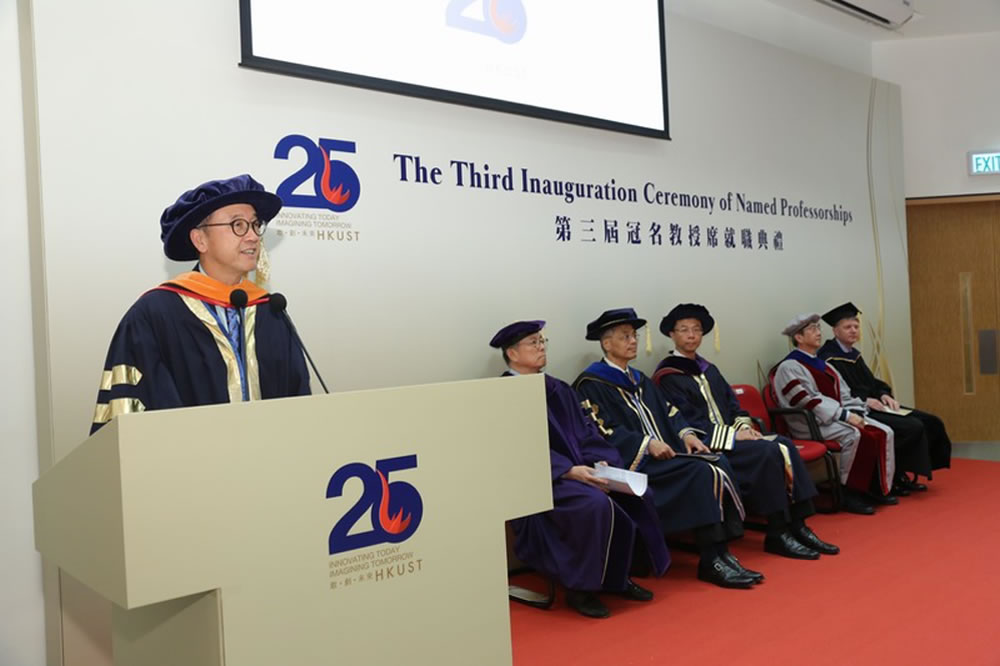Associate Director, Big Data Institute
Many centuries ago, a single building—the ancient Library of Alexandria—was believed to house the entirety of human knowledge. Today, knowledge is measured not in books but in trillions of gigabytes. Every second, the world is flooded with a vast amount of new information, which may prove meaningless if not properly understood. To harness the power of the data revolution for social good, data scientists must find ways to transform big data into usable knowledge.
Spearheading these efforts is Professor Xiaofang Zhou, who has won global acclaim for his research on managing, integrating, and analyzing big data for real-world applications. He holds the prestigious title of IEEE Fellow for his contributions in the field of advanced query processing. His cutting-edge data-driven approach acknowledges the power of data by treating them as “first-class citizens”—just as important as the techniques used for data processing. Ensuring quality is key, as only high-quality data can meet the scientific, business, and personal needs of modern society.
Serving society is a topic close to Professor Zhou’s heart. Many of his 400+ co-authored research papers (several of which have won prestigious awards) describe innovative applications of data science to medicine, transport, the environment, and the social sciences. Cities will benefit from the streamlined urban planning and traffic management afforded by a data-driven approach. Data science may even support the rollout of clean energy—a vision further promoted by Professor Zhou in his work for Australia’s Center for Energy Data Innovation.
Professor Zhou’s career spans two continents and has evolved during the world’s most exciting and tumultuous decades of technological development. His interest in technology was sparked during childhood by an encounter with one of Mainland China’s early computers—unsophisticated by modern standards but taking up a whole room. A few decades later and half a world away, he found himself one of the top researchers in Australia to develop and use advanced computing technologies to solve real-world problems.
Moving from Mainland China to Australia was game-changing for Professor Zhou. After obtaining BSc and MSc degrees in Computer Science from Mainland China’s Nanjing University, he embarked on a Ph.D. in the same subject at the University of Queensland (UQ). Australia would remain his home for the next three decades. Here, he pursued his passion for scientific research for social advancement—first joining the Commonwealth Scientific and Industrial Research Organisation (CSIRO) and then taking up a professorship at UQ. From 2006 to 2020, he headed UQ’s internationally renowned Data and Knowledge Engineering research group and Data Science discipline.
No less commendable is Professor Zhou’s dedication to upholding standards within the scientific community. His teaching has inspired a generation of future computer scientists, and he regularly serves on committees for international conferences and the editorial boards of prestigious journals. Membership of national scientific centers and initiatives in Australia has allowed him to promote research collaboration and excellence at the highest levels. In recognition of these achievements, he won the Hongjun Lu WAIM Outstanding Contribution Award in 2016 and the DASFAA Outstanding Contributions Award in 2021.
Recently, another jump across continents brought Professor Zhou to Hong Kong. In February 2021, HKUST welcomed this exceptional scholar into its ranks as Otto Poon Professor of Engineering and Chair Professor of the Department of Computer Science and Engineering.
After decades in Australia, Professor Zhou is eager to discover what Hong Kong, as a technology hub and gateway to Asia and the Greater Bay Area, has to offer in the era of big data. There is no doubt that the region—and beyond!—will benefit in turn. “Our work is for the good of society,” emphasizes Professor Zhou. His forthcoming research on spatiotemporal data will open new possibilities for smart cities, 5G technologies, and intelligent transport, helping society to take the leap into a smarter, more sustainable future.















